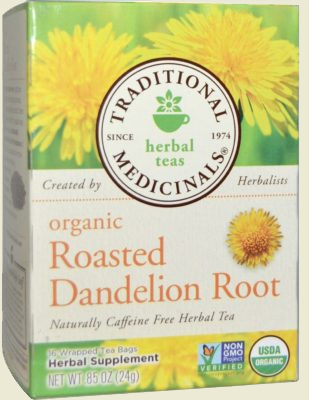What’s Over-the-counter Otc In Derivatives
The lowest tier is the Pink® Open Market, which is the default marketplace for broker-dealers who want to commerce OTC securities. This tier contains overseas corporations, penny stocks, shell firms, and other corporations that choose not to disclose financial data. Customized contracts might be tough to promote if an investor needs to exit a place, as finding a purchaser for a selected contract may be challenging. This potential for low liquidity makes it riskier to engage https://www.xcritical.in/ in OTC derivatives during risky market conditions. Transactions usually are not publicly reported, in contrast to these on centralized exchanges. This secrecy advantages corporations by allowing them to make massive trades without the market shifting against them, which is crucial for minimizing the price of getting into or exiting positions.
Benefits And Downsides Of Otc Markets
With futures, you commit to purchasing or promoting property at a predetermined future date. Options provide the right (but not obligation) to purchase or sell property, offering flexibility for strategic investment and danger management. An OTC market, or over-the-counter market, is a decentralized network the place securities are traded immediately between two parties, bypassing a centralized exchange. This can embody stocks, bonds, derivatives, and different financial instruments.
How Can I Commerce Within The Otc Market In India?
These private deals are tailor-made to fulfill particular needs, making them extra customized but in addition less regulated. Unlike exchange-traded options, OTC choices wouldn’t have a secondary market the place they’ll short or long their positions on the change. The checks and balances by means of clearing and settlement are put in place mutually by the counterparties involved. The phrases of business can be tweaked and customised to swimsuit the interest of both events.
Benefits And Risks Of Otc Stocks
A trader can hedge or shield against currency rate fluctuations by using derivatives. Companies that cope with foreign currency incessantly benefit from OTC. They be positive that fluctuations don’t enhance their obligations or lower their earnings. Interest Rate, Commodity, Equity, Currency, and credit derivatives are the primary types of OTC derivatives. The lack of proper guidelines and regulations makes the over the counter market rather more unstable and more susceptible to the risks.
- This permits for direct negotiations between events, catering to specific needs and funding strategies.
- However, such shares are very few, and finding them requires lots of painstaking research.
- The trading of forex derivatives is just like the buying and selling of shares and futures choices.
- Dealers present the prices for getting and selling of derivatives to the shoppers, which are agreed upon by the shoppers.
- The primary benefit of Over-the-Counter (OTC) derivatives is their flexibility.
What Are Over-the-counter Options?
This article is ready for assistance solely and isn’t meant to be and should not alone be taken as the idea of an funding decision. Please note that past performance of economic products and instruments doesn’t essentially point out the prospects and efficiency thereof. The investors usually are not being offered any guaranteed or assured returns. Even though the OTC market remains an important factor of world finance, OTC derivatives possess exceptional significance. The outstanding flexibility supplied to market individuals permits them to regulate spinoff contracts that suit the most effective threat publicity.On the other hand, OTC buying and selling elevates the overall liquidity in financial markets. It’s as a end result of corporations incapable of buying and selling on formal exchanges can access capital via over-the-counter markets.
However, it comes with potential issues as these stocks usually trade in low volumes. Therefore, an investor making an attempt to cowl an unprofitable short position will likely get stuck. The OTC market is mostly less transparent than the exchange-traded market. This occurs because there is not any presence of centralised platforms where market participants can access info relating to trades, volumes, and costs. OTC derivatives within the Indian inventory market are regulated by the Securities and Exchange Board of India (SEBI), which oversees market conduct and compliance with securities laws.
The OTC market offers an important platform for smaller and rising firms to lift capital. These firms, often unable to fulfill the strict listing necessities of major exchanges, find a priceless opportunity in the OTC market to trade their shares and secure funding. OTC stocks are riskier than stocks listed on the recognised inventory exchanges of India.
What’s An Instance Of An Over The Counter Market?
The Over-the-Counter (OTC) Market is a decentralized trading platform, completely different from formal exchanges, where individuals trade shares, bonds, currencies, or commodities immediately between two events. Trades are carried out by way of phone, e mail, or digital networks somewhat than through a centralized trade. Investments in the securities market are subject to market risk, read all related paperwork fastidiously earlier than investing. OTC shares are typically cheaper than stocks listed on the recognised stock exchanges of India. This allows you to buy them in bulk with a small investment quantity.
However not all such companies trade on the major stock exchanges such as the NSE and the BSE. There are approximately 5000 companies listed on the Bombay Stock Exchange (BSE) and a few 1600 corporations listed on the National Stock Exchange (NSE). This is way from the sum whole of all the companies whose inventory is traded in the markets.
Only ahead contracts are exchanged over-the-counter between two events. Without transferring the underlying, they transfer the credit score danger from one party to a different. For instance, credit score linked notes (CLN) and credit score default swaps (CDS). In this class a particular rate of interest serves as the underlying asset. OTC derivatives with an interest rate component include Swaps, government security (G-Sec) bonds, Swaps and so forth. Options are rights to purchase or promote an underlying asset at a fixed price, also referred to as the strike price, on a preset date in future.
Full-service brokers have a bodily presence within the form of places of work in the geographies that they function in and this allows them to offer a much wider vary of services. OTC choices or over-the-counter choices can be outlined as option contracts which are traded between private parties and not through acknowledged exchanges. Such personal choices contracts are popularly referred to as over the counter choices or just OTC choices. Over-the-counter options don’t have any statutory disclosure requirements.
Credit Default Swaps and Credit Linked Notes are two types of credit score derivatives traded over-the-counter. Unlike the extremely regulated stock exchanges, the OTC market lacks transparency. This can lead to a shortage of dependable details about the traded corporations, making funding decisions more challenging and riskier. The OTC market is known for its wide array of funding opportunities, including distinctive and area of interest securities. This diversity permits buyers to discover new sectors and put cash into progressive startups that aren’t out there on major stock exchanges. Certain OTC markets may need restricted liquidity and include a considerably low trading volume.



